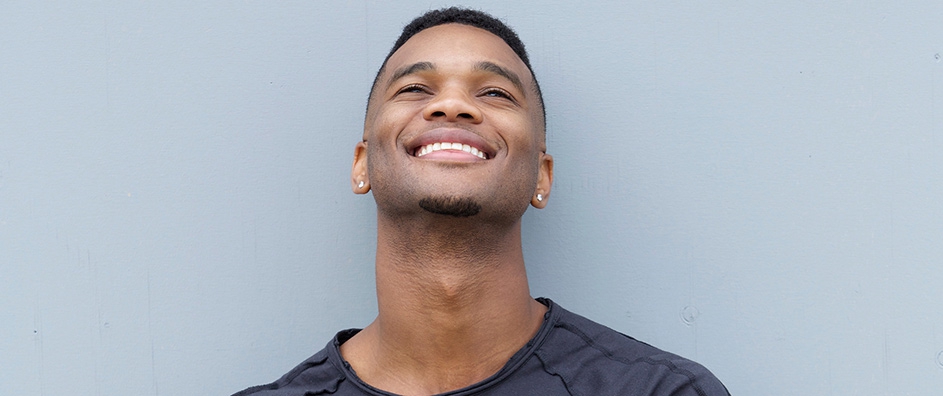The views expressed in our content reflect individual perspectives and do not represent the authoritative views of the Baha'i Faith.
Is it, then, possible to be saved from the trials of God? No, verily. There is a great wisdom therein of which no one is aware save the wise and knowing. Were it not for tests, genuine gold could not be distinguished from the counterfeit. Were it not for tests, the courageous could not be known from the coward. – Abdu’l-Baha, from a 1902 tablet to an American Baha’i, Star of the West, Volume 5, pp. 238-239.
Have you ever known anyone who seemed to lead a charmed life, someone with no troubles or tests, a person who glided through this world without suffering any severe pain or personal crises?
No? Me neither.
Sure, some people outwardly seem trouble-free. It may look like they lead charmed lives, but believe me, everyone gets their share of tests and difficulties in this earthly life. No one escapes that reality. It might appear as if the privileged or the wealthy or the genetically blessed manage to escape the pain the rest of us experience—but that’s never the case.
We all suffer. Suffering defines the universal human condition. Whether from our relationships or our professions or our health or our self-inflicted troubles, every person goes through tests and difficulties sooner or later. They may not be visible on the surface, but they’re inevitable. Each one of us fears those great trials in life, but they come, nevertheless.
So how should we respond when those tests challenge us? What’s the best way to cope with life’s inescapable decree of suffering? Since we know we will suffer, how can we prepare?
The Baha’i Faith recommends a very different way of thinking about and dealing with our tests. Instead of fearing them and doing our best to avoid them, the Baha’i teachings say, we should welcome them:
To the sincere ones, tests are as a gift from God, the Exalted, for a heroic person hasteneth, with the utmost joy and gladness, to the tests of a violent battlefield, but the coward is afraid and trembles and utters moaning and lamentation. Likewise, an expert student prepareth and memorizeth his lessons and exercises with the utmost effort, and in the day of examination he appeareth with infinite joy before the master. Likewise, the pure gold shineth radiantly in the fire of test. Consequently, it is made clear that for holy souls, trials are as the gift of God, the Exalted; but for weak souls they are an unexpected calamity. – Abdu’l-Baha, Baha’i World Faith, p. 371.
Rather than seeing every physical, psychological and spiritual test as a looming disaster, Abdu’l-Baha advises, we should anticipate the arrival of those tests; joyfully prepare for them; and greet them as we would a great gift. We should use those tests and trials to increase our detachment from the physical world and our attachment to the spiritual realities:
In this world we are influenced by two sentiments, Joy and Pain.
Joy gives us wings! In times of joy our strength is more vital, our intellect keener, and our understanding less clouded. We seem better able to cope with the world and to find our sphere of usefulness. But when sadness visits us we become weak, our strength leaves us, our comprehension is dim and our intelligence veiled. The actualities of life seem to elude our grasp, the eyes of our spirits fail to discover the sacred mysteries, and we become even as dead beings.
There is no human being untouched by these two influences; but all the sorrow and the grief that exist come from the world of matter — the spiritual world bestows only the joy!
If we suffer it is the outcome of material things, and all the trials and troubles come from this world of illusion.
For instance, a merchant may lose his trade and depression ensues. A workman is dismissed and starvation stares him in the face. A farmer has a bad harvest, anxiety fills his mind. A man builds a house which is burnt to the ground and he is straightway homeless, ruined, and in despair.
All these examples are to show you that the trials which beset our every step, all our sorrow, pain, shame and grief, are born in the world of matter; whereas the spiritual Kingdom never causes sadness. A man living with his thoughts in this Kingdom knows perpetual joy. The ills all flesh is heir to do not pass him by, but they only touch the surface of his life, the depths are calm and serene. – Abdu’l-Baha, Paris Talks, pp. 109-110.
Suffering, of course, comes in many forms. We can lose a loved one, get a dread disease, become unemployed, even starve from a lack of food. But our pain, Abdu’l-Baha reminds us, comes from the world of matter. If we strongly believe that another world, a spiritual existence, will ultimately replace and transcend the conditions of this temporary material life, our troubles all become temporary, too:
These human conditions may be likened to the matrix of the mother from which a child is to be born into the spacious outer world. At first the infant finds it very difficult to reconcile itself to its new existence. It cries as if not wishing to be separated from its narrow abode and imagining that life is restricted to that limited space. It is reluctant to leave its home, but nature forces it into this world. Having come into its new conditions, it finds that it has passed from darkness into a sphere of radiance; from gloomy and restricted surroundings it has been transferred to a spacious and delightful environment. Its nourishment was the blood of the mother; now it finds delicious food to enjoy. Its new life is filled with brightness and beauty; it looks with wonder and delight upon the mountains, meadows and fields of green, the rivers and fountains, the wonderful stars; it breathes the life-quickening atmosphere; and then it praises God for its release from the confinement of its former condition and attainment to the freedom of a new realm. This analogy expresses the relation of the temporal world to the life hereafter — the transition of the soul of man from darkness and uncertainty to the light and reality of the eternal Kingdom. At first it is very difficult to welcome death, but after attaining its new condition the soul is grateful, for it has been released from the bondage of the limited to enjoy the liberties of the unlimited. It has been freed from a world of sorrow, grief and trials to live in a world of unending bliss and joy. The phenomenal and physical have been abandoned in order that it may attain the opportunities of the ideal and spiritual. – Abdu’l-Baha, The Promulgation of Universal Peace, p. 47.
Next: Should We Fear God?
You May Also Like
Comments

















Thanks